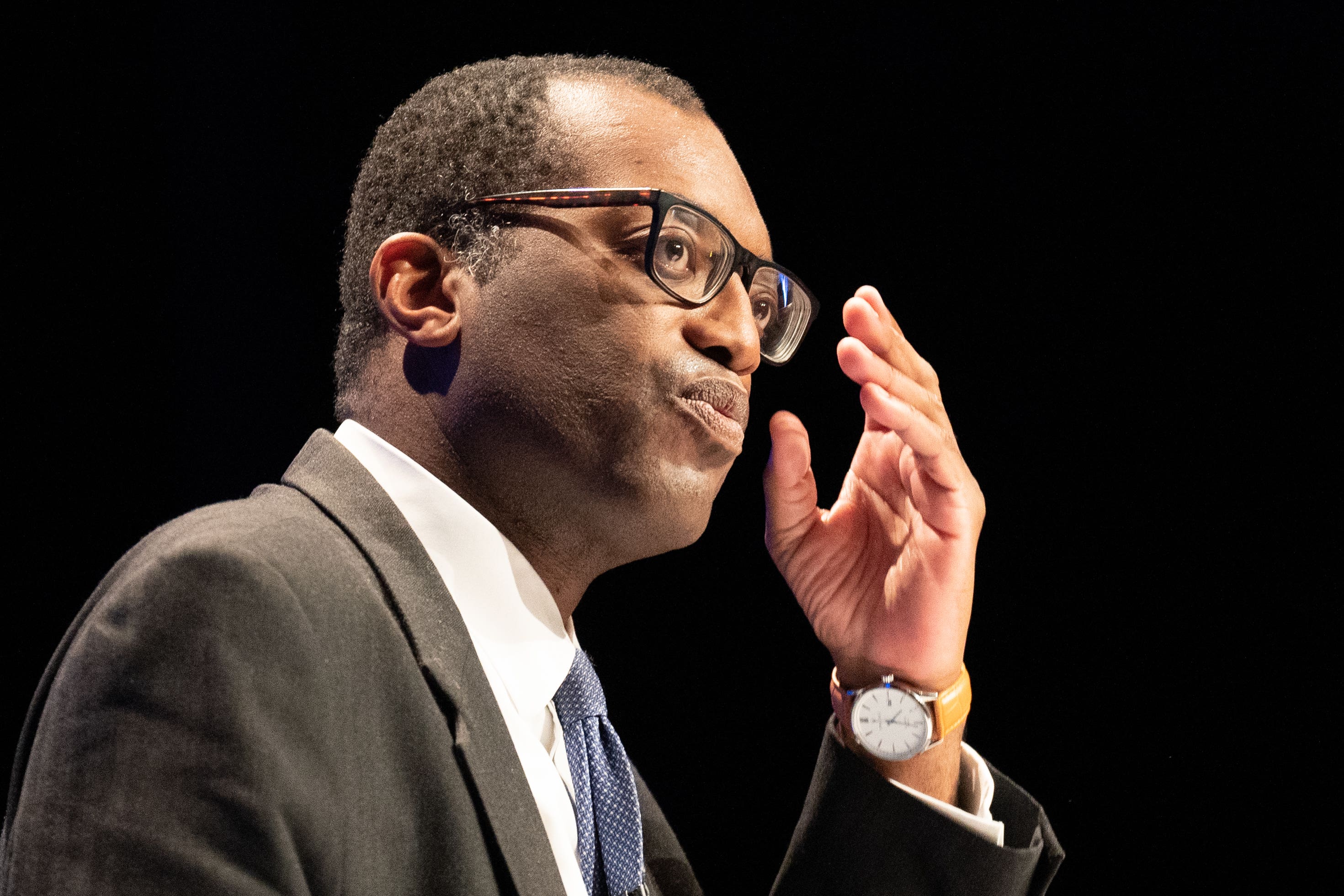Kwarteng: Mini-budget came in ‘high pressure’ period around Queen’s funeral
The Chancellor gave a sit-down interview to GB News in which he sought to defend his mini-budget.

Your support helps us to tell the story
From reproductive rights to climate change to Big Tech, The Independent is on the ground when the story is developing. Whether it's investigating the financials of Elon Musk's pro-Trump PAC or producing our latest documentary, 'The A Word', which shines a light on the American women fighting for reproductive rights, we know how important it is to parse out the facts from the messaging.
At such a critical moment in US history, we need reporters on the ground. Your donation allows us to keep sending journalists to speak to both sides of the story.
The Independent is trusted by Americans across the entire political spectrum. And unlike many other quality news outlets, we choose not to lock Americans out of our reporting and analysis with paywalls. We believe quality journalism should be available to everyone, paid for by those who can afford it.
Your support makes all the difference.The Queen’s death added to the “high-pressure” environment around the preparation of the mini-budget last month, the Chancellor has said.
The Government was plunged into crisis in the wake of Kwasi Kwarteng’s plan being announced in the House of Commons, as the pound plunged to historic lows and the Bank of England was eventually forced to intervene to calm the markets.
Mr Kwarteng, in an interview with GB News, said it was important to place the mini-budget in the “context” of the Queen’s death and funeral.
He spoke about the frenzied few days ahead of the mini-budget when asked if he would have done anything differently.
We had a nation in mourning and then literally four days I think after the funeral, we had the mini-budget
“It was a very quick time that we did it. And you have got to remember the context.
“What was extraordinary about that month was that we had a new Government and also we had the sad passing of Her Majesty Queen Elizabeth II, so we had a nation in mourning and then literally four days I think after the funeral, we had the mini-budget.
“It was high-speed, high-pressure environment and we could, as (former prime minister) David Cameron used to say, have prepared the pitch a bit better.”
But Mr Kwarteng also sought to downplay concerns, suggesting that stability could return to the UK economy in the next few weeks.
He denied that the policies contained in the £45 billion tax-cutting budget were “extreme”, instead labelling it a “bold” package that has helped to “shift” political debate.
“No one is arguing we should put up corporation tax, no one is arguing that we shouldn’t have reversed the national insurance increase.
“I think we have shifted the debate and I am hopeful that over the next few weeks things will stabilise.”
Quizzed on the decision, made in the face of a potential rebellion among Tory MPs, to U-turn on plans to scrap the 45p top rate of tax, Mr Kwarteng said: “I felt the 45p rate was overshadowing the entirety of the really good measures we were announcing and that is why we decided not to proceed.”
But he refused to be drawn on what is likely to be the next key battle between Tory MPs and the Government – a decision over whether benefits should rise in line with inflation.
It was put to the Chancellor that the issue has already caused tensions within his party.
Stressing that no decisions have yet been made, he said: “There is always a healthy debate about these things, but I haven’t committed to any particular, I haven’t made any decisions because we’re doing a consultation at the moment.”